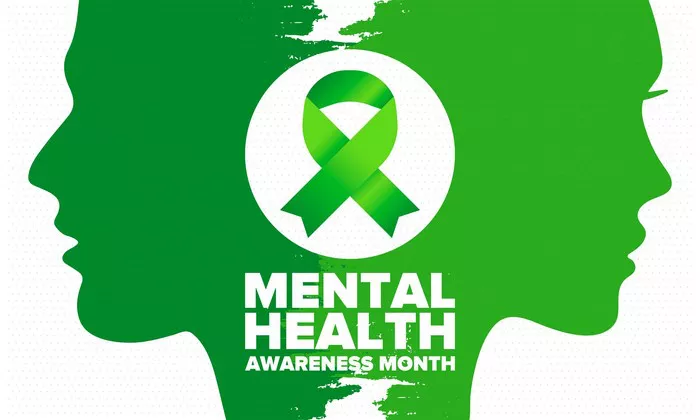1. Understanding Bipolar Disorder:
Bipolar disorder is a complex mental health condition characterized by extreme mood swings that include emotional highs (mania or hypomania) and lows (depression). These mood swings can range from mild to severe and can interfere with daily functioning, relationships, and overall quality of life. While the exact cause of bipolar disorder is not fully understood, it is believed to result from a combination of genetic, biological, and environmental factors.
There are several types of bipolar disorder, including bipolar I disorder, bipolar II disorder, cyclothymic disorder, and other specified and unspecified bipolar and related disorders. Each type has its own set of diagnostic criteria, but they all share the common feature of fluctuating mood episodes.
Managing bipolar disorder typically requires long-term treatment and support. Medications, such as mood stabilizers, antipsychotics, and antidepressants, are commonly prescribed to help stabilize mood and prevent the recurrence of manic and depressive episodes.
2. Exploring Non-Medication Approaches:
While medication plays a crucial role in managing bipolar disorder for many individuals, there are also non-medication approaches that can complement treatment and improve overall well-being:
Therapy: Cognitive-behavioral therapy (CBT) is one of the most effective forms of therapy for bipolar disorder. CBT helps individuals identify and challenge negative thought patterns, develop coping strategies for managing mood swings and stress, and improve problem-solving skills.
Lifestyle Modifications: Lifestyle factors can significantly impact bipolar disorder symptoms. Incorporating the following modifications into daily life can help promote stability:
Sleep Hygiene: Maintaining a regular sleep schedule is essential for managing bipolar disorder. Strategies for improving sleep hygiene include establishing a consistent bedtime routine, avoiding stimulants like caffeine before bed, and creating a comfortable sleep environment.
Stress Management: Stress can trigger mood episodes in individuals with bipolar disorder. Practicing relaxation techniques such as meditation, yoga, and deep breathing exercises can help reduce stress and promote emotional balance.
Diet and Exercise: A balanced diet and regular exercise are important for overall health and well-being, including mood stability. Eating a nutritious diet rich in fruits, vegetables, whole grains, and lean proteins, and engaging in regular physical activity can help regulate mood and energy levels.
Substance Use: Alcohol and recreational drugs can worsen symptoms of bipolar disorder and interfere with medication effectiveness. It is important for individuals with bipolar disorder to avoid substance use and seek support if struggling with addiction.
3. Setting Realistic Expectations:
It is crucial to recognize that while non-medication approaches can be beneficial in managing bipolar disorder, there is currently no cure for the condition. Bipolar disorder is a chronic illness that requires ongoing management and support.
Treatment plans should be personalized to each individual’s unique needs and circumstances. Collaborating closely with mental health professionals, including psychiatrists, psychologists, and therapists, can help ensure that treatment goals are effectively addressed and monitored over time.
4. Additional Resources:
For individuals seeking further information and support for bipolar disorder, there are many reputable resources available:
National Alliance on Mental Illness (NAMI): NAMI offers education, support, and advocacy for individuals and families affected by mental health conditions, including bipolar disorder.
Depression and Bipolar Support Alliance (DBSA): DBSA provides peer-led support groups, educational resources, and advocacy initiatives for individuals living with mood disorders.
International Bipolar Foundation (IBPF): IBPF offers online resources, webinars, and support groups for individuals affected by bipolar disorder and their loved ones.
Conclusion
It is important for individuals with bipolar disorder to remember that they are not alone and that there are resources and support available to help them manage their condition and improve their quality of life. By taking a proactive approach to treatment and incorporating both medication and non-medication strategies, individuals with bipolar disorder can work towards achieving stability and well-being.
FAQs
Can a bipolar person live a normal life without medication?
It’s possible for some individuals with bipolar disorder to manage their symptoms effectively without medication, but it often requires a comprehensive treatment plan involving therapy, lifestyle adjustments, and regular monitoring by mental health professionals.
Can you live a normal life with bipolar?
Yes, many people with bipolar disorder can lead fulfilling lives with proper management. Treatment may include medication, therapy, support groups, and lifestyle changes. Adhering to a treatment plan and seeking support when needed are essential for maintaining stability and well-being.
Can I treat bipolar myself?
While self-help strategies like maintaining a stable routine, getting regular exercise, and managing stress can complement professional treatment, managing bipolar disorder without professional guidance is not recommended. A comprehensive treatment plan overseen by mental health professionals is typically necessary for effective management of bipolar disorder.
Related topics:
- Understanding Depression: A Window into Invisible Pain
- Managing Anxiety While Breastfeeding: Safety and Support
- Understanding the Nuances: Pathological vs. Compulsive Lying


